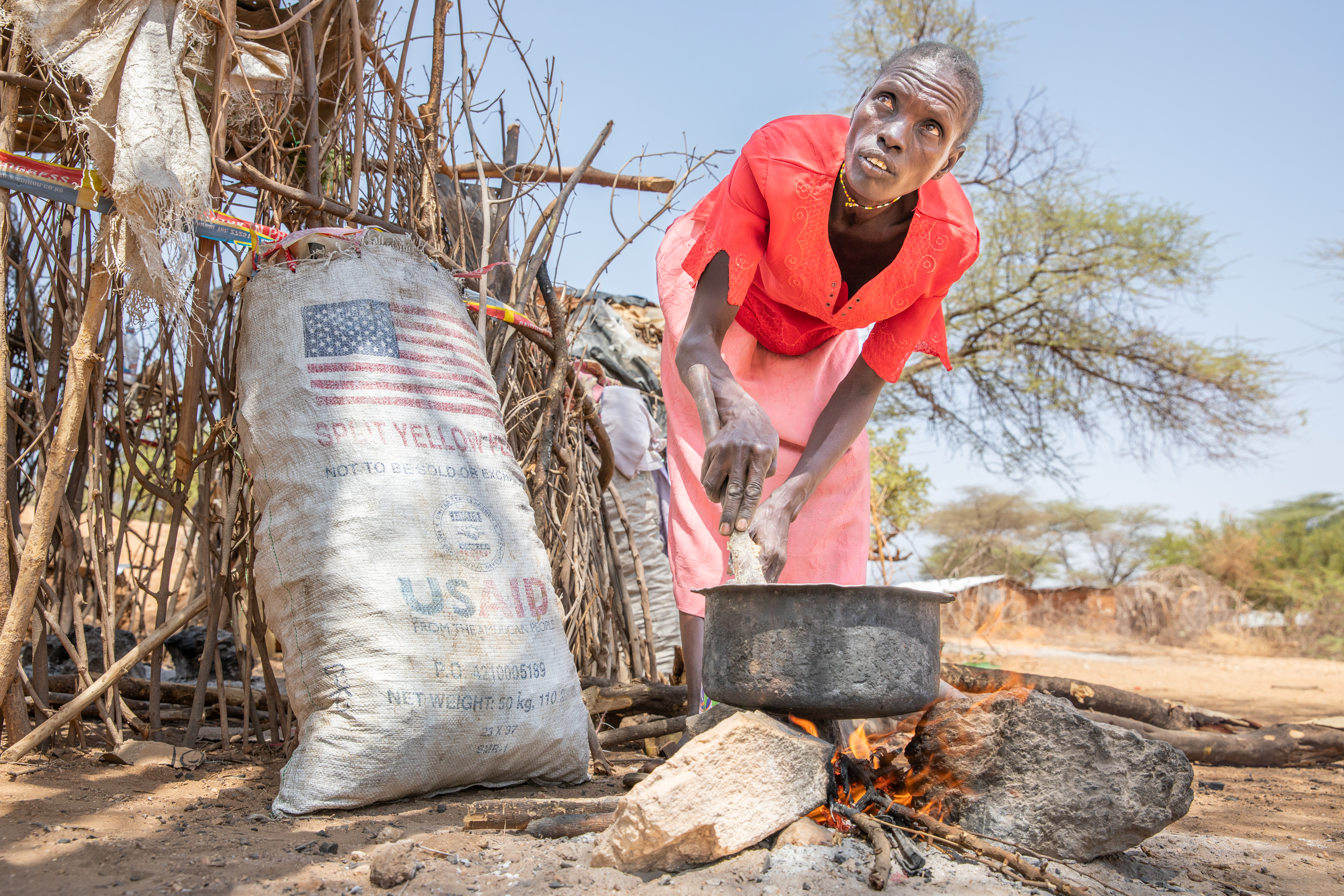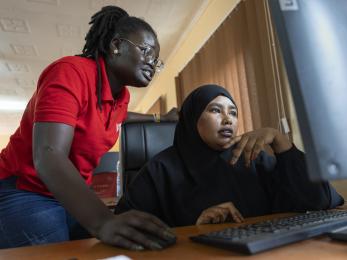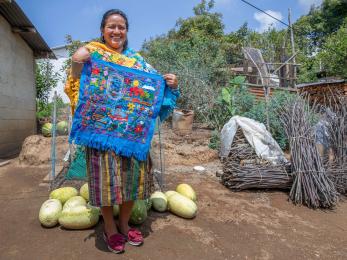Helping build a new generation of female teachers
If you're a girl in many parts of the world — especially in some of the toughest places —the odds are stacked against you. In Somalia, barriers like early marriage, household responsibilities and traditional gender expectations make it nearly impossible to stay in school.
Beyond cultural challenges, schools are often located far from homes, forcing girls to take the risk of walking alone during their morning and afternoon commutes. Many schools also lack girl-friendly spaces — some don’t even have private latrines for girls.
A lack of female teachers means that girls don’t have role models or female advocates to champion their education.
In fact, Somalia's enrollment and retention rates for girls and young women are the worst in the world. Only 23 percent of primary school age girls are fortunate enough to attend classes.
Secondary school statistics are even more alarming: 96 percent of girls between ages 14 to 17 are not in school.
Saida's determination to learn
These are girls like Saida. At 17, she was married, and a year later, she was the mother of triplets. Shortly after that, she had a fourth child.
Always a good student, she could no longer pursue her dream of becoming a teacher. Instead, she spent her days cooking, cleaning and caring for her four children.
Saida’s story is not rare in Somalia. But we know that when we invest in a girl through education, we help her avoid child marriage and teen pregnancy and we give her a chance to succeed. We unlock her economic potential. And we set in motion a change that lasts for generations.
A 10-percent increase in girls going to school increases a country’s GDP by 3 percent. And, when women earn income, studies show that they invest 90 percent of it into their children and households for more nutritious food, school fees and health care.
A Mercy Corps assessment of 16 secondary schools in Somalia found that only three percent of teachers are female. To improve female enrollment and retention in secondary schools and fill the void of women teachers, we have organized a two-year-long female-only teacher training at Amoud University.
Nestled in the outskirts of the mountainside town of Borama, 50 women gather in a university classroom. One of those students is Saida, who is thriving in the program. With a new sense of confidence, she no longer shies away from classroom participation. Instead, she engages in group discussions, raising her hand proudly to ask questions.
“When you are learning to become a teacher, you need to be confident in yourself,” she said. “Then when you’re in your classroom, you need to build the confidence in your students and encourage all to participate in class.”
Today, Saida remains one of the highest-achieving trainees. With this program, Saida is not only able to further her education, but her hope for a better future has been restored.
“I want to act as a role model for my community. I want to be a teacher to empower the next generation of girls.”
Saida and the other trainees have committed to return to their hometowns after completing the program to teach at the local school for three years. Because of this, more girls will have role models to advocate for them.
It’s not just about women and girls
But working with only one side is not enough. In order to reach women and girls in some of the toughest places, especially communities with strict cultural traditions, it is critical to include men and boys.
Programs that empower women and girls often challenge deeply-held beliefs and sudden change can lead to increased tension and violence toward women.
At Mercy Corps, we know that women and men each play a unique role in making progress possible. Lasting solutions require that men and boys act as partners, supporters and advocates of female empowerment in their communities.
Mohamed, a father with children still in primary school, is a member of a new education committee in Hargeisa. He says he and the fellow members of the committee have gone door-to-door to encourage parents to enroll their girls in school.
“I want to improve the quality of these schools today so my children can benefit tomorrow,” he explained. “I have girls and getting girls in schools now will make it easier on them when it is their time to go to school.”
We also established a Women’s Council for Girl Child Education, where members receive training that enables them to identify and raise awareness within their communities about the challenges girls face.
Last year, the council held a community event for the first time. The gathering exceeded expectations with nearly 90 attendees. Boys, girls, men and women came together, in one room, to learn about gender issues and the importance of educating girls. The message was heard loud and clear.
“Girls are the backbone of our society,” said Faduma, a council member who helped organize the event.
Raising community awareness and support for girls’ education is just one step towards progress. It won't be easy, but by chipping away the barriers girls like Saida face, we create a better future for the youth of Somalia one step at a time.


